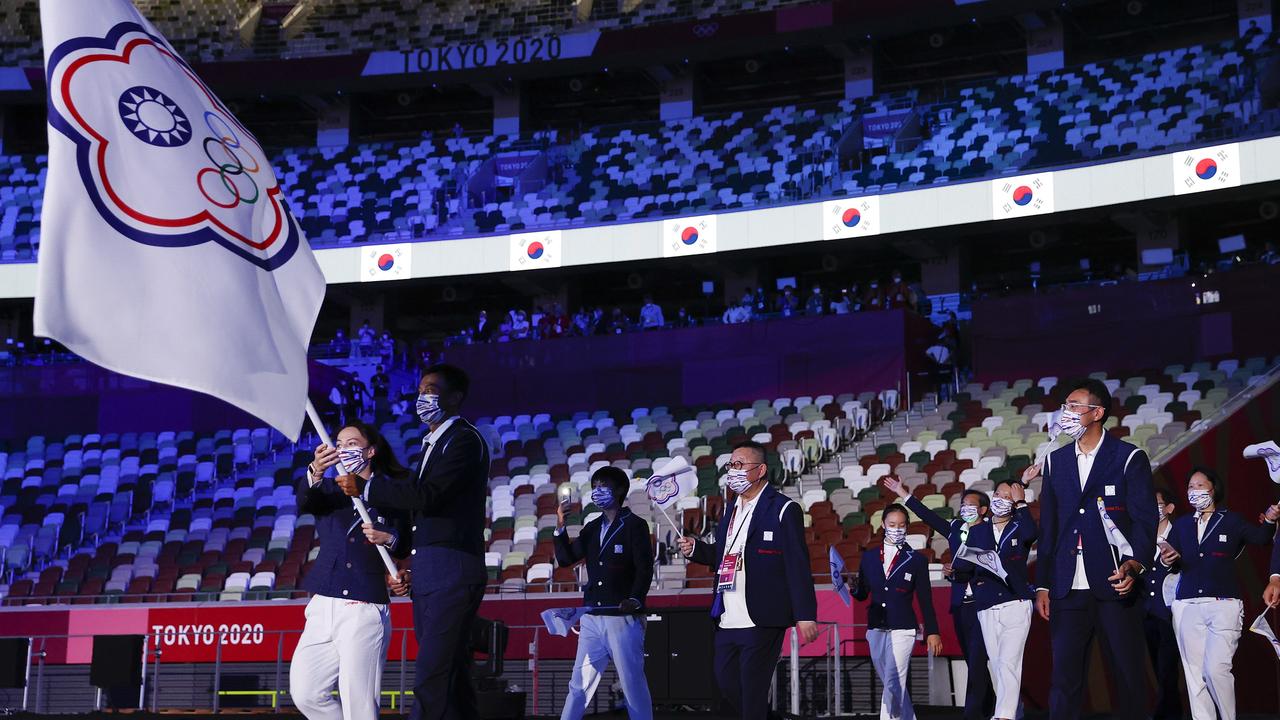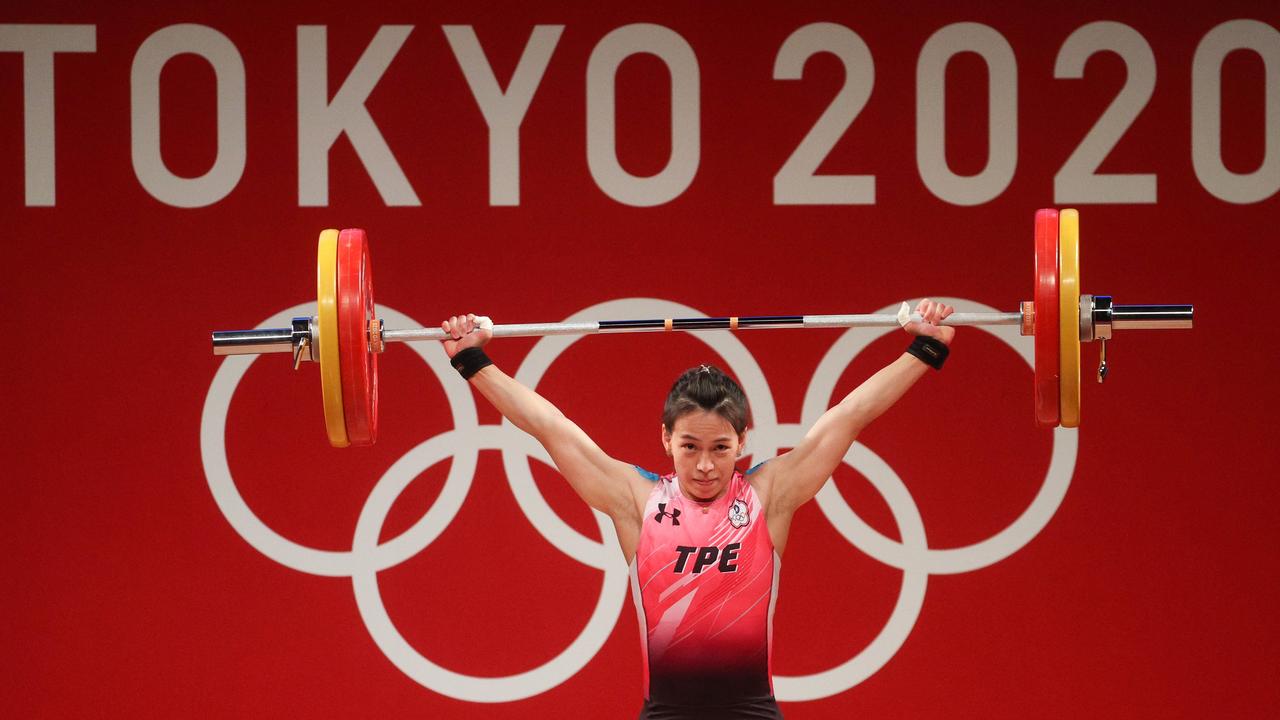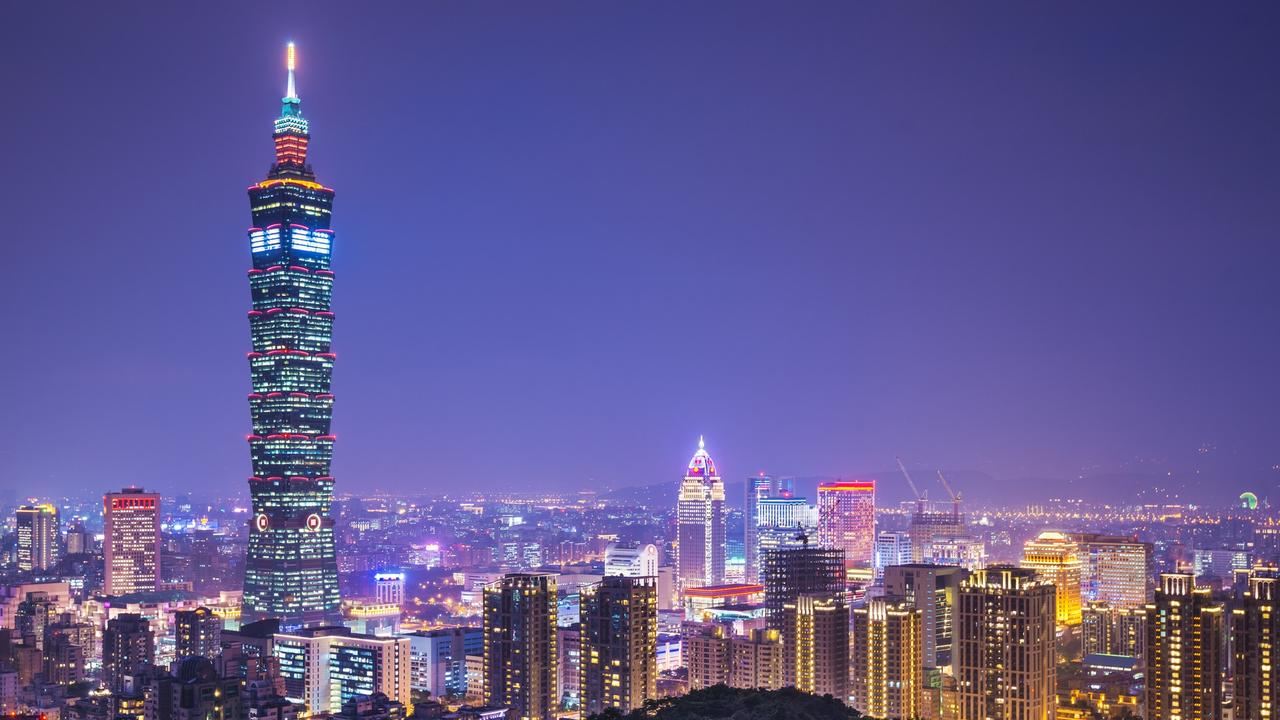Chinese Taipei: The medal winning Olympic nation you won’t find on any maps
It’s already stacked up four medals at Tokyo and has competed for decades. But look this country up on a map and you won’t find it.
The names of a number of the teams competing at the Olympic Games have had people scratching their heads.
The main one has been ROC, the Russian Olympic Committee, which is an umbrella term for Russian athletes as Russia itself has been banned until late 2022 for state sanctioned doping.
But there’s one team that has been causing confusion for decades – for more than 40 years in fact.
That team is Chinese Taipei.
Look that up in any atlas; scour any map – you will not find a country called Chinese Taipei anywhere.
So who is this mystery team and where do they come from?

Three Chinas at the games
To add a bit more confusion to proceedings, Chinese Taipei is one of three separate Olympic teams which bear the name of China. There would actually be four if Beijing had its way.
The most prominent of those teams is the People’s Republic of China (PRC). It’s a biggie, sending 777 people to Tokyo 2020 including 431 athletes.
It’s also one of the most successful nations and has finished in the top three in the overall medal tally in every summer Olympics since the 2000 games in Sydney.
There there’s team “Hong Kong, China” which is a hang over from pre-1997 when Britain ruled Hong Kong and the colony competed separately to the UK.
It’s ongoing inclusion recognises that while Hong Kong is part of China it is a special administrative region (SAR) and supposedly governs itself under the concept of “one country, two systems”.
Although that division is far greyer after the imposition by Beijing last year of the national security law that has cracked down on practically any dissent.
On Monday, Hong Kong won a fencing gold. At the medal ceremony the Hong Kong flag was raised but the national anthem of the People’s Republic was played.
China’s other SAR, the former Portuguese territory of Macau also competes separately to the PRC at most international sporting tournaments. But, so far, the International Olympic Committee (IOC) has not allowed it to be represented separately at the games.
RELATED: What team is ROC at the Olympic Games?


What is Chinese Taipei?
And then there’s Chinese Taipei.
Despite the name, it’s not part of the People’s Republic of China at all – although Beijing would dearly like it to be.
Chinese Taipei is the name given at the Olympics to the Republic of China, better known as Taiwan.
Located to the east of the Chinese mainland in the SOuth China Sea this mountainous nation has a population of 24 million compared to China’s 1.4 billion.
In almost every practical sense, Taiwan is an independent nation. Unlike the PRC, it is also proudly democratic.
But Beijing claims Taiwan as its own and in recent years has become increasingly strident in its calls for the island nation to unify with China or face the threat of invasion.
The reasoning for all this froth and bubble goes back to 1949 when the Chinese nationalists, that for several decades formed the government on the mainland, fled to Taiwan following the Communist victory in the Chinese Civil War.
RELATED: China’s emergency naval exercise over Taiwan revealed

This effectively created two Chinas – Communist China on the mainland and nationalist China in Taiwan.
Taiwan competed for several Olympics as the Republic of China.
But Beijing’s “one China” policy demands the world choose between official recognition of it or Taiwan.
Most countries and international bodies have picked the vastly larger and more powerful Communist China.
Taiwan boycotted the 1976 and 1980 Olympics because the IOC wouldn’t let it march under the Republic of China banner following protests from the PRC.

Finally, in 1979, a compromise was reached. The Nagoya Resolution meant Taiwanese athletes could re-enter the Olympic stadium as a separate team.
But it had to be under the “Chinese Taipei” name and a special flag unique to the team and quite distinct from the Taiwanese national flag.
If an athlete wins gold the national flag anthem of Taiwan is played, not the national anthem.
The name Chinese Taipei refers to Taiwan’s capital of Taipei.

What the compromise names means is controversial
Even the compromise name is contentious.
In Taiwan, the name is seen as showing that Taipei is culturally Chinese rather than a part of the PRC.
But in China, the name is translated as “Taipei, China” suggesting the island is indeed part of China.
To avoid awkwardness, generally the name is referred to in English in most languages so the ambiguity of what the word “Chinese” means can remain.
Yet, the compromise name hasn’t stopped Beijing getting bothered about Taiwan at the Olympics.
On the first weekend of Tokyo, the Chinese consulate in New York criticised US network NBC for showing an “incomplete map” of China in its coverage.
During the opening ceremony, the broadcaster flashed up a map of each nation as the various flag bearers marched into the stadium.
First “hurt feelings†transgression of the Tokyo Olympics happened halfway through the opening ceremony, as NBC uses an “incomplete map†of China. pic.twitter.com/TBcSUIAeuE
— Eric Fish (@ericfish85) July 24, 2021
When the People’s Republic came out, the map showed mainland China minus Taiwan
“We urge NBC to recognise the serious nature of this problem and take measures to correct the error,” the post on social media site Weibo stated.
It’s not clear whether NBC are all that fussed.
As for Chinese Taipei at the games, it’s now at 26 on the medals table with two silver and two bronze to its name, one each in archery, judo, table tennis and taekwondo.
Whatever name they’re given, whatever flag they fly under or anthem that’s played, the athletes are just happy to do their homeland proud.




